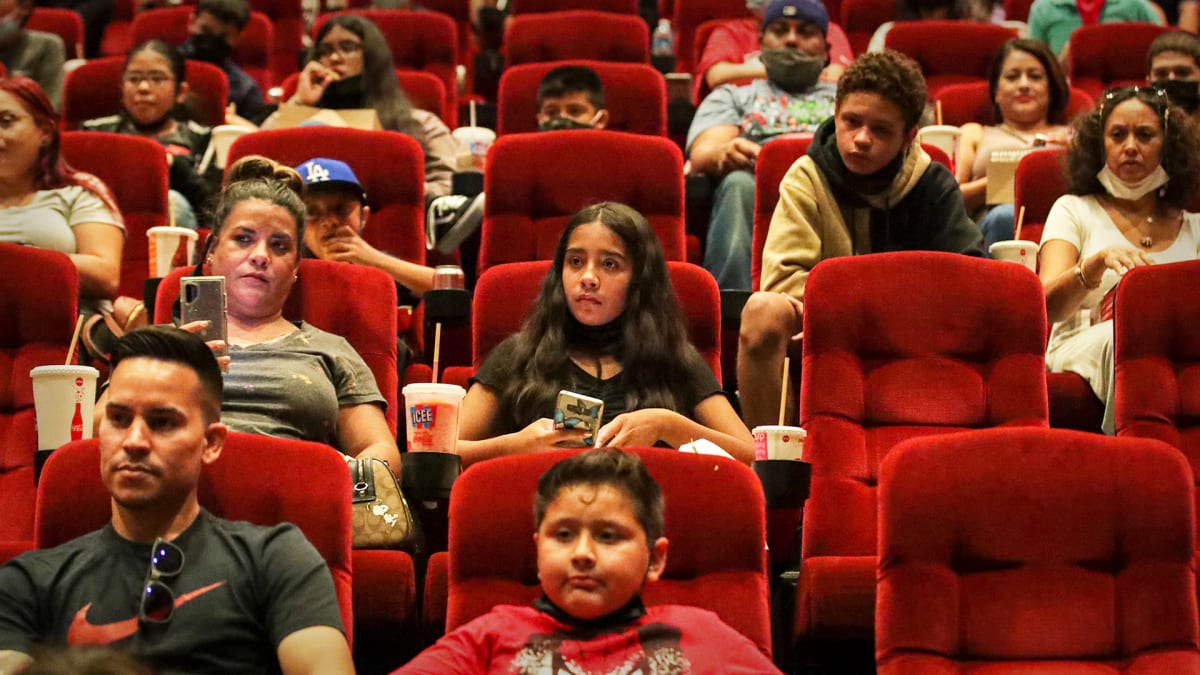
So more films based on the world of “Lord of the Rings” are heading your way, whether you want it or not.
On a recent earnings call, Warner Bros. Discovery (DISCA) CEO David Zaslav announced a deal has been made to make “multiple” films from J. R. R. Tolkien’s beloved fantasy series.
Don’t Miss: Netflix Is Cutting Prices in Over 100 Regions. Here's Where
New studio leaders Mike De Luca and Pam Abdy will work in concert with director Peter Jackson, who made both the beloved “Lord of the Rings” trilogy that ran from 2001 to 2003, as well as the less beloved but still financially successful trilogy based on “The Hobbit,” 2012 to 2014. Both trilogies made in excess of $3 billion.
Jackson, as well as his collaborators Fran Walsh and Philippa Boyens said Warner Bros. Discovery and Embracer (more on them in a second) “have kept us in the loop every step of the way,” according to Variety.
Rights to ‘The Lord of the Rings’ Is A Whole Thing
While the story of the rights to Tolkien’s works isn’t quite as complicated and perilous as the journey to Mordor, it’s still pretty tangled.
In 1968, Tolkien sold the right to “The Hobbit” and “The Lord of the Rings,” to United Artists, which then sold them to the The Saul Zaentz Company in 1976.
After many years of production limbo, Jackson was able to get Disney (DIS), through Miramax, to license film rights. (And then-Miramax head, the now-imprisoned Harvey Weinstein, famously bad mouthed Ashley Judd and Mira Sorvino to Jackson to prevent their casting, as retaliation for the actress's refusal to sleep with him.)
But Disney insisted on a single film, not a trilogy, which is just a strange thing to think about in the current day, when the opposite would be the case. Anyway, New Line Cinema then bought out Miramax for about $12 million.
In 2017, Amazon (AMZN) spent an eye-popping $250 million just for the rights to make a TV show based on the Lord of the Rings property, and then spent $465 million on last year’s “The Lord of the Rings:The Rings of Power.” So that was over a billion dollars that Jeff Bezos spent on Middle Earth, which earned strong, if qualified, reviews and which the company says has been viewed by more than 100 million people.
But that was all just for the television rights, mind you. Last year, the Swedish video game and media company Embracer Group has purchased the rights to “Lord of the Rings,” “The Hobbit” and other properties from the Saul Zaentz Co.
The terms of the details were not disclosed, but CNBC reports that “the purchase was a part of six acquisitions,” totaling $572.8 million.
The company said it will explore “additional movies based on iconic characters such as Gandalf, Aragorn, Gollum, Galadriel, Eowyn and other characters from the literary works of J.R.R. Tolkien."
Do We Need This? Warner Thinks It Does
As we’ve noted before, the record-breaking and Oscar-winning success of Jackson’s “Lord of the Rings” trilogy, paved the way for blockbusters centered around material with a built-in audience that would be the main driver for the film (and later television) audience.
Following last year’s Warner Bros. Discovery merger, Zazlav has been on a mission to increase productivity, but Wall Street analysts have been, at best, skeptical, with one firm expressing uncertainty amid "elevated debt load, macro headwinds and growing secular pressures from faster cord-cutting.” The company has posted of $11 billion and a loss of $2.1 billion.
So Warner needs more hits, and it needs them now.
Many fans complained that the central problem with “The Hobbit” trilogy is that it was a trilogy based around one book, and therefore felt padded with filler. But the films made money, so now we’re getting into territory where creative teams will have to develop new stories beyond Tolkien’s novels. Already, people are complaining on Twitter that this feels like unnecessary IP mining, and we’d be better off just letting the trilogy rest, as it's perfect the way it is.
Of course, to be charitable, it’s not unthinkable that the right creative team could put together something that satisfies these fans, but this fan discontent isn’t an encouraging sign for Warner Bros. Discovery. But when has that stopped Zaslav before?







